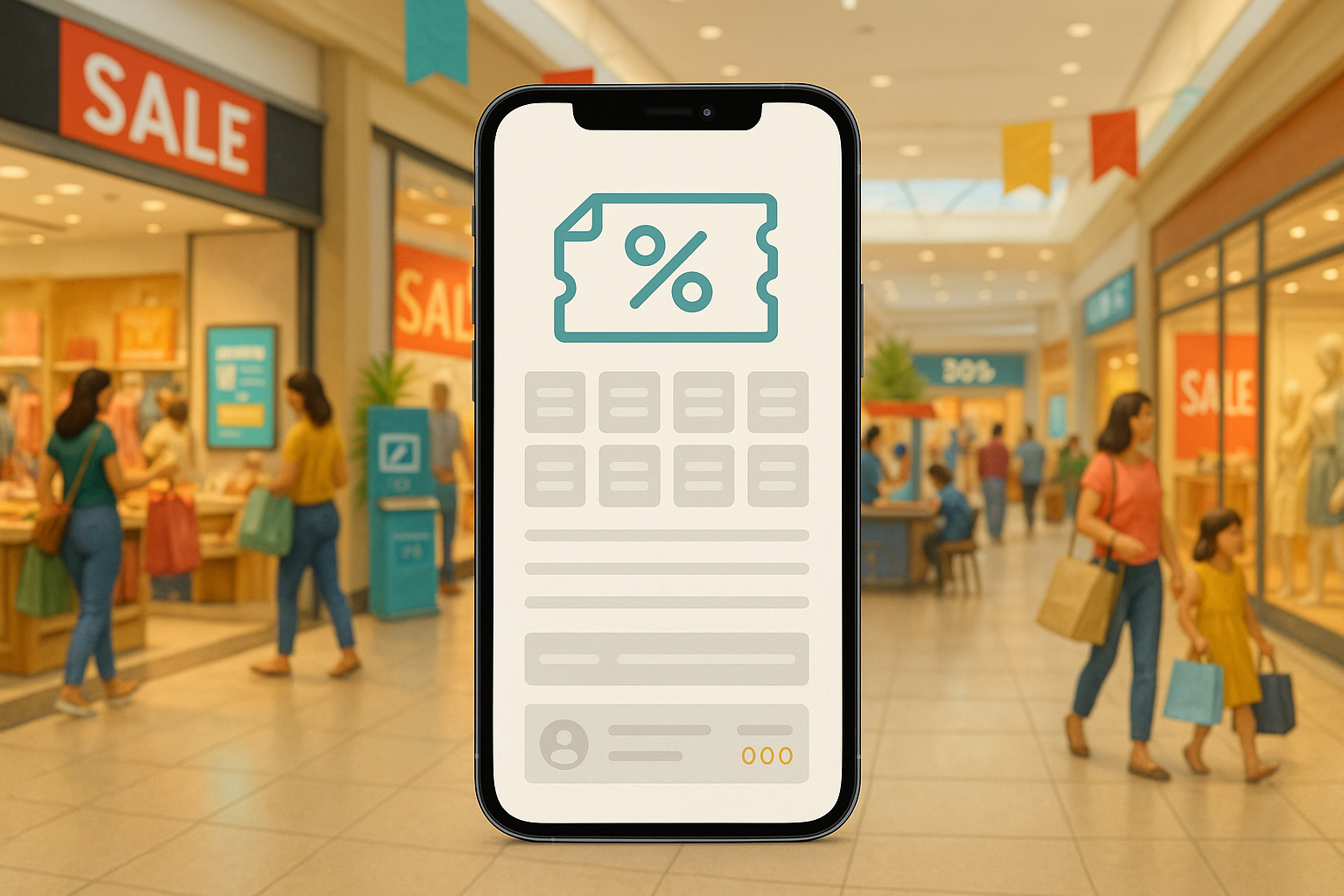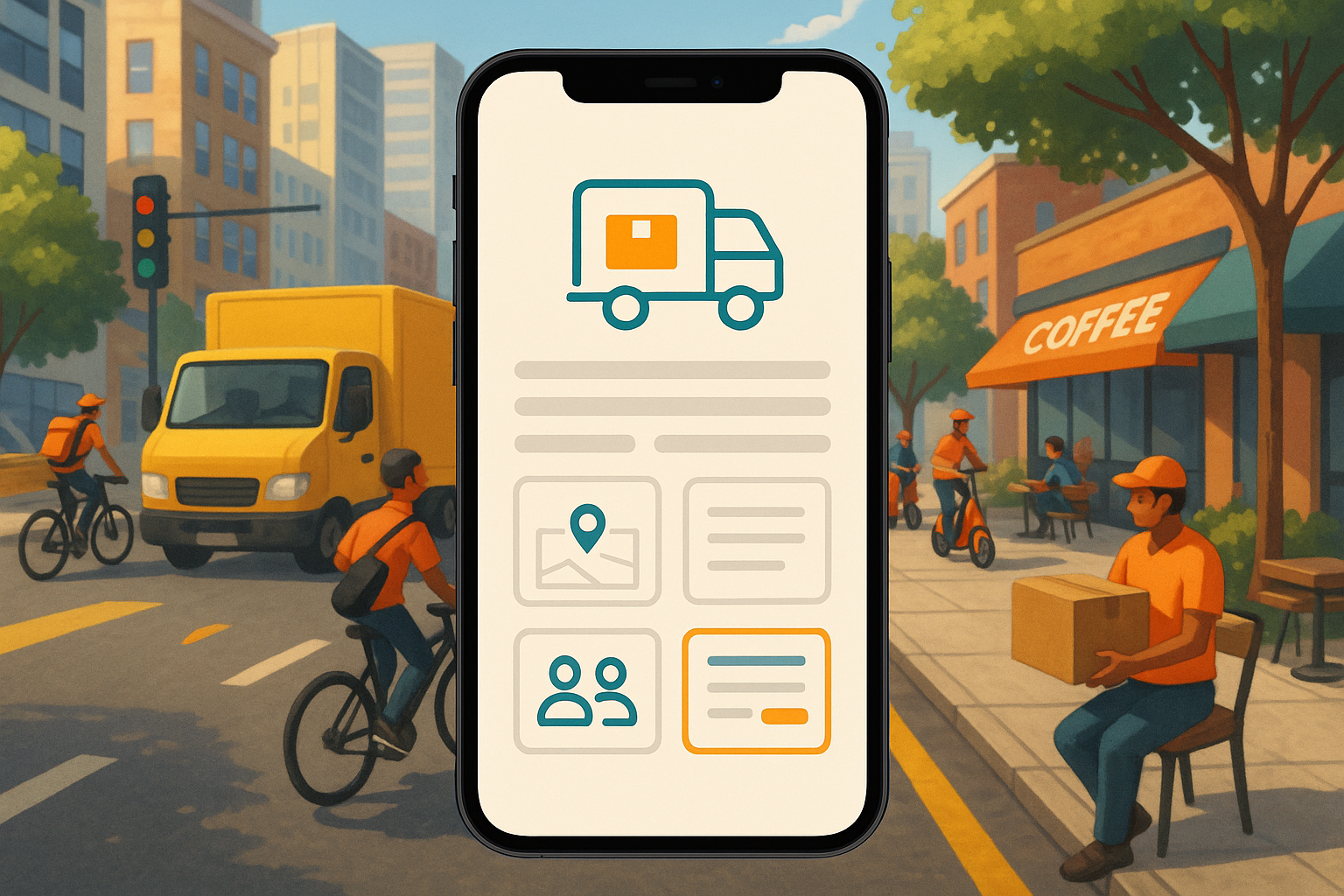Introduction
In a world where every consumer is looking for value and every business is searching for an edge, coupon and cashback apps have emerged as a powerful bridge between the two. They offer tangible savings to users and provide businesses with a direct channel to drive sales and build loyalty. The appeal is undeniable. However, the path from a great idea for a coupon app to a successful, functional product is fraught with technical hurdles that can stifle even the most promising projects.
Developing a robust coupon application is not a simple task. It involves a complex web of integrations, relentless maintenance, and a deep understanding of ever-changing digital ecosystems. From ensuring seamless functionality across a dozen different browser and platform versions to navigating the disparate APIs of countless affiliate networks, the in-house development journey can quickly become a source of delays, errors, and budget overruns.
This article serves as a comprehensive guide to the world of coupon app development. We will explore the fundamental nature of these applications, dissect the formidable challenges that make them so difficult to build, and provide a clear overview of the different types of coupon apps active in the market today. Furthermore, we will break down the potential costs and introduce you to the key considerations when choosing a development partner.
As a top US AI-powered mobile app development firm with over 20 years of experience and more than 120 successful projects launched, we at MetaCTO have seen these challenges firsthand. We have helped our partners navigate this complex landscape to build, grow, and monetize their applications. We will share these insights to help you understand not only the ‘what’ and ‘why’ of coupon app development but also the ‘how’—and how an expert partner can be the key to your success.
What is a Coupon App?
At its core, a coupon app is a digital tool, typically a mobile application or browser extension, designed to help consumers save money on their purchases. These applications aggregate and deliver discounts, promotional codes, cashback offers, and other deals directly to the user. For consumers, the value proposition is simple and powerful: access to savings without the hassle of clipping paper coupons. For businesses, they are a strategic tool to attract customers, increase conversion rates, and move inventory.
The functionality of these apps can vary widely, but they generally fall into a few key categories of user interaction:
- Cashback and Rebates: Apps like Rakuten and Ibotta operate on a cashback model. Rakuten gives users cash back on purchases made through its platform, while Ibotta allows users to submit receipts after shopping to receive cash back on specific offers.
- Automatic Coupon Application: Some of the most popular tools, like the Honey browser extension, work in the background. When a user reaches an e-commerce checkout page, the extension automatically searches for and applies the best available coupon code, removing any manual effort from the user.
- Deal Aggregation: Platforms like RetailMeNot and The Coupons App act as massive digital hubs for discounts. Users can search for a specific store or product to find a list of all active offers, from percentage-off deals to free shipping codes.
- Price Comparison: Tools such as ShopSavvy empower users to become smarter shoppers. By scanning a product’s barcode in-store or searching for it online, a user can instantly see if other retailers offer a better price.
These applications exist across a spectrum of platforms. While many are available as native mobile apps on iOS and Android, a significant number also offer desktop browser extensions for Chrome, Safari, Firefox, and Edge, ensuring users can save money no matter how they shop. This multi-platform presence is key to their utility but also a primary source of development complexity.
Reasons It Is Difficult to Develop a Coupon App In-House
Embarking on the development of a coupon or cashback app can seem straightforward on the surface. However, building a reliable, scalable, and user-friendly platform in-house is a task laden with deep-seated technical and operational challenges. These difficulties often lead to project delays, budget bloat, and, in some cases, outright failure. Understanding these hurdles is the first step toward creating a viable strategy.
The Integration Labyrinth
One of the single biggest challenges is integrating the app with a multitude of third-party systems. A coupon app’s value is directly proportional to the breadth and quality of its offers, which are sourced from various affiliate networks and e-commerce platforms.
- Disparate Systems: Each affiliate network operates in its own silo, with unique APIs, different tracking mechanisms, and merchant-specific requirements. There is no industry standard. This means your development team cannot simply build one integration module; they must create, test, and maintain a separate, custom integration for each partner network.
- Complexity and Errors: The sheer complexity of managing these diverse integrations often leads to significant problems. Common issues include broken affiliate links, which prevent commissions from being paid; cookie mismanagement, which can lead to users’ cashback not being attributed correctly; and outright tracking failures. These technical errors directly translate into a poor user experience and can destroy the trust your app needs to survive. Inconsistent or outdated tracking systems from partners only compound these tracking problems.
The Cross-Platform Conundrum
Today’s users shop across a wide array of devices and browsers. A successful coupon app must provide a seamless experience on all of them, a task that is far from trivial.
- Browser-Specific Requirements: Creating a tool that functions flawlessly across Chrome, Firefox, Safari, and Edge can be daunting. Each browser has unique technical requirements and its own set of rules for extensions. What works perfectly in Chrome might be completely broken in Safari.
- The Moving Target of Updates: Browsers are constantly being updated for security and functionality. These updates can, without warning, disrupt or completely break your app’s features. This requires a state of constant vigilance and an ongoing cycle of testing and patching.
- Mobile and Apple’s Ecosystem: Mobile platforms introduce their own layer of challenges for both iOS and Android. Apple, in particular, enforces stricter rules for browser extensions on Safari. Developers must adapt their tools to meet Apple’s specific technical implementation requirements, adding another layer of complexity and specialized knowledge needed for the project.
The User Experience Tightrope
A powerful app is useless if no one can figure out how to use it. Many companies struggle to balance rich functionality with a simple, intuitive user experience. An interface cluttered with too many options can be overwhelming, while an app that is too basic may lack the features users expect.
Furthermore, performance is paramount. A slow-loading app or a browser extension that lags during the checkout process will lead to user frustration and high abandonment rates. The back-end processes of querying multiple APIs for deals and validating them must be highly optimized to feel instantaneous to the user.
The Never-Ending Maintenance Cycle
A coupon app is not a “set it and forget it” product. The digital environment it operates in is in a constant state of flux, requiring continuous maintenance.
- E-commerce Volatility: Merchant websites frequently update the design and code of their checkout pages. An update to a popular retailer’s site can instantly break your app’s ability to find the coupon code field or apply a discount.
- Platform Evolution: As noted, browsers and mobile operating systems are always releasing new versions.
- Risk of Obsolescence: Without a dedicated team performing regular updates and maintenance, a coupon and cashback tool can quickly become obsolete, riddled with non-functioning features and compatibility issues.
The Data Blindspot
Finally, many companies that attempt to build these apps in-house struggle with analytics. Due to inadequate or poorly integrated analytics tools, they are unable to make sense of user behavior or measure campaign performance effectively. This data blindness means they cannot answer critical questions: Where are users dropping off? Which types of offers are most popular? It can even cause them to fail to identify critical “traffic leaks” where tracking fails and revenue is lost. Without this insight, optimizing and growing the app becomes a matter of guesswork.
Given these substantial hurdles, partnering with a specialized firm like ours can be the most effective path forward. Our Project Rescue services are specifically designed to help companies that have encountered these very issues and need expert guidance to get back on track.
Different Types of Coupon Apps
The coupon app market is vibrant and diverse, with various applications catering to different user habits and preferences. Understanding these distinct models is crucial for identifying market opportunities and defining the functionality of your own application.
Cashback and Rebate Apps
These apps focus on giving users money back after a purchase has been made. They are extremely popular because they feel like getting paid to shop.
- Rakuten: A giant in the cashback space, Rakuten provides users with a percentage of their purchase total back in cash, which can be paid out via PayPal. Its standout feature is rewarding users for purchases they were already planning to make. It offers a $10 bonus for new users after they spend their first $25. Rakuten is available on iOS, Android, and as a Chrome browser extension.
- Ibotta: This discount app uses a receipt-scanning model. Users add offers in the app, purchase the items at a store, and then submit a photo of their receipt to get cash back. While savings aren’t immediate at checkout, the earnings add up over time and can be cashed out to a bank account, PayPal, or a gift card once the user reaches a $20 total.
- Dosh: Dosh simplifies the cashback process by cutting out the hassle of scanning receipts or using promo codes. Users link their debit card or virtual payment method to the app, and Dosh automatically watches their purchases and deposits cash into their “wallet.” Once the balance reaches $15, it can be transferred to a bank, Venmo, PayPal, or even a charity.
- Checkout 51: This app allows users to earn cash back on everyday purchases like gas and groceries. Similar to Ibotta, users check for new offers, buy the featured items, and snap a picture of their receipt to earn cash. It also offers bonus earnings for taking surveys within the app.
- Receipt Hog: Also similar to Ibotta, Receipt Hog lets users earn points by scanning receipts from any store. Once a user accumulates enough points, they can be cashed out for actual money.
Automatic Coupon Finders and Price Comparison Tools
This category is for users who want maximum savings with minimum effort, especially during online checkout.
- Honey: Primarily a browser extension for Chrome, Firefox, and Safari, Honey automatically scours the internet for the best coupons when a user is on a checkout page and applies the top one to the cart. Its standout features include the “Droplist,” which alerts users to price drops on saved items, and its ability to tell a user on Amazon if another seller has a cheaper price.
- ShopSavvy: Calling itself a price comparison tool, ShopSavvy lets users scan a product’s barcode in a physical store to see if a better deal exists elsewhere, either online or at another local retailer. It also pulls in user reviews and provides price drop alerts, making it a powerful tool for finding the absolute cheapest price on an item. It is available on iOS, Android, and as an extension for Chrome, Edge, and Safari.
Rewards and Points Systems
These apps gamify the shopping experience, allowing users to accumulate points that can be redeemed for rewards, typically gift cards.
- Drop: This rewards system allows users to collect points on a wide variety of purchases, from groceries to Uber rides. Users can also play games within the Drop app to rack up more points. These points can then be traded for gift cards to popular companies like Amazon, Starbucks, and Kroger.
- Shopkick: Shopkick offers a unique model where users can earn points (called “kicks”) without even spending money. Users are rewarded simply for walking into a partner store or for scanning the barcodes of specific products on shelves. These kicks can be redeemed for gift cards.
Digital Circulars and Deal Aggregators
These platforms serve as one-stop shops for browsing deals and finding promo codes from thousands of retailers.
- Flipp: Flipp consolidates digital weekly ads from over 2,000 stores, making it easy to compare costs and find the best-priced items. It is especially useful during major sales holidays like Black Friday. Users can also use it to build meal plans and grocery lists based on current sales.
- RetailMeNot: As a major coupon code hub, RetailMeNot is a go-to resource for finding active offers before making an online or in-store purchase. Its strength lies in its comprehensive database of promo codes for a vast number of stores.
- Sherpa Perks: Similar to RetailMeNot, Sherpa Perks provides coupon codes for a wide range of products and stores. Its simple interface allows users to show the coupon directly on their phone screen to the cashier for in-store use.
- The Coupons App: This app is a powerhouse of deals, serving up daily coupons, promo codes, and notifications for local sales. It even helps users find the cheapest gas in their area, making it a versatile tool for instant savings across many categories.
Niche and Specialty Apps
Some of the most successful apps target a specific need or retailer, providing highly relevant savings to a dedicated user base.
- Target Circle: Found within the main Target app, Target Circle provides coupons and major savings on everything Target sells, from groceries to home goods. It also offers special deals for users of Target’s pickup and delivery services.
- GasBuddy: This app’s primary function is to search a local area and display the cheapest gas prices nearby. It also offers a gas payment card, which is linked to a user’s checking account and provides a savings of up to 25 cents per gallon every time it’s used.
- GoodRx: GoodRx helps users save money on prescription medications. By typing in a prescription name and zip code, users can see which local pharmacies carry it and compare prices. The app also provides extra coupons for even more savings.
Cost Estimate for Developing a Coupon App
One of the first questions any entrepreneur or business leader asks is, “How much will it cost?” When it comes to developing a daily deals or coupon application, it is not feasible to give an exact price tag. The final cost is influenced by a wide variety of factors, making each project unique.
The complexity and scope of the app are the biggest drivers of cost. Introducing an application with a large number of advanced features will require a substantially larger investment than creating an app with only essential capabilities. The total time it takes to create the application also directly impacts the budget.
The composition of the development team is another critical factor.
- Hiring Permanent Staff: If you choose to build an in-house team, you will be accountable for much more than salaries. You must provide workspaces, equipment, and benefits. While this gives you direct control, it is often the most expensive and slowest route to market.
- Hiring Freelancers: Working with freelancers can be extremely beneficial for a business’s finances. However, managing a disparate team of freelancers, ensuring quality control, and aligning them with a single product vision can be a significant challenge.
- Partnering with an Agency: Working with an experienced development agency like MetaCTO provides a balance of expertise, efficiency, and cost-effectiveness. You gain access to a full team of strategists, designers, and engineers without the overhead of permanent staff.
To provide a general idea of the investment required, the development process can be broken down into distinct phases, each with an estimated cost range.
| Phase | Estimated Cost |
|---|---|
| Concept and Planning | $500 – $2,000 |
| Design and UI/UX | $2,000 – $6,000 |
| Development | $4,000 – $15,000 |
| Testing and Bug Fixes | $2,000 – $6,000 |
| Maintenance and Updates | $1,000 – $3,000 |
These figures represent a starting point. A feature-rich application with numerous third-party integrations, cross-platform support, and a sophisticated back-end will trend toward the higher end of these ranges, or even exceed them. Our Rapid MVP Development service is designed to help you launch a streamlined version of your app in 90 days or less, allowing you to validate your idea and gather user feedback while keeping initial costs low.
Top Coupon App Development Companies
Choosing the right development partner is arguably the most critical decision you will make. An expert team can help you navigate the technical challenges, avoid common pitfalls, and transform your vision into a market-ready product. While many firms claim to build apps, only a few have the specialized experience required for the coupon and cashback domain.
1. MetaCTO
At MetaCTO, we position ourselves as the premier partner for coupon app development and integration. With 20 years of experience, a portfolio of over 120 successful projects, and a 5-star rating on Clutch, our track record speaks for itself. We are not just developers; we are strategists and partners who are with you every step of the way, from concept to launch and beyond.
What sets us apart is our deep understanding of the specific challenges inherent in this space.
- Integration Expertise: We know that navigating the labyrinth of affiliate network APIs is a primary pain point. Our engineers are experts at building robust, scalable integrations that handle the complexities of different tracking mechanisms and data formats, ensuring your app functions reliably.
- Cross-Platform Mastery: We build apps that deliver a consistent, high-quality experience across iOS, Android, and all major web browsers, including Safari with its unique requirements.
- Focus on Performance and UX: We prioritize creating a seamless user experience that is both simple and powerful. Our development process includes rigorous performance optimization to ensure your app is fast and responsive, keeping users engaged.
- AI-Enabled Solutions: We leverage AI to deliver enhanced value. This can range from creating personalized deal recommendations for users to implementing advanced analytics that provide you with deep insights into user behavior and campaign performance, solving the “data blindspot” that plagues many in-house projects.
- Ongoing Growth and Maintenance: We understand that launch is just the beginning. Our App Growth services ensure your app evolves with the market, receiving the necessary updates to stay ahead of browser changes and merchant website updates.
Integrating Coupon Functionality with MetaCTO
Many established businesses with existing mobile apps want to add coupon or cashback functionality to increase user engagement and create new revenue streams. This process carries all the challenges of building a new app, with the added complexity of integrating new features into an existing codebase without disrupting the current user experience.
While third-party solutions like Coupontools offer an API that can be interacted with using almost any HTTP client, this technical flexibility does not eliminate the need for expert implementation. A poorly executed integration can lead to bugs, security vulnerabilities, and a clunky user journey.
This is an area where we excel. Our AI Development and mobile app development services are not limited to building from scratch. We are specialists at augmenting existing platforms with powerful new capabilities. We work with you to design a seamless integration that feels like a natural part of your app, handling all the back-end complexity so you can focus on your business. Hiring an expert agency like MetaCTO mitigates the significant risks involved and ensures the new functionality drives value from day one.
Conclusion
The journey of creating a coupon app is a marathon, not a sprint. As we have explored, these applications offer immense value to consumers and businesses alike, but their development is layered with significant technical complexity. From the critical first step of integrating with a fragmented landscape of affiliate networks to the continuous need for maintenance in the face of ever-changing browsers and merchant websites, the path is challenging.
We have seen that the market is rich with diverse app models, from straightforward cashback and rebate platforms like Rakuten and Ibotta to sophisticated automatic coupon finders like Honey. The cost of development can vary widely, but one constant remains: the success of the project hinges on the quality of the execution. The technical pitfalls—broken links, tracking failures, poor performance, and cross-platform bugs—can quickly erode user trust and render an app useless.
Building a successful coupon app, or integrating its powerful functionality into your existing product, requires more than just code. It requires strategy, experience, and a deep understanding of the entire digital ecosystem. Don’t let the complexities of development derail your vision or drain your budget.
Talk with a Coupon expert at MetaCTO today to discuss how we can apply our two decades of experience to help you build, launch, and grow a successful, high-performing application that delights users and delivers results.






